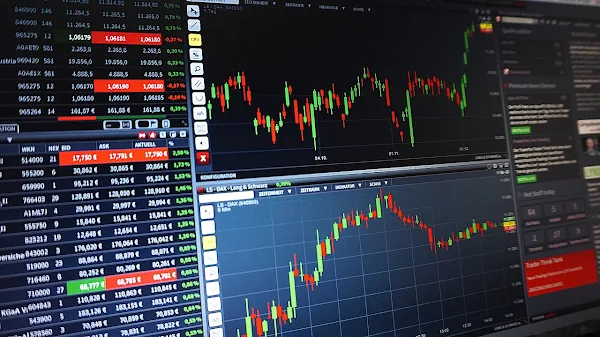## Introduction
Tata Motors, a global automobile manufacturing company, has been making waves in the industry with its consistent financial performance, quality management, and strong industry presence. In this article, we will delve into the various aspects of Tata Motors, including its stock performance, fundamental analysis, market cap, and industry comparisons. We will also explore the company's growth trajectory, its position in the Indian market, and its plans for the future.
Stock Performance and Financials
Tata Motors has been a frontrunner in the stock market, consistently delivering impressive results. As of the latest data, Tata Motors' stock closed at ₹754.20, marking a 1.84% increase from the previous day's closing price of ₹740.60. The company's market capitalization stands at ₹2,88,960.37 Crore, reflecting its strong position in the industry.
52-Week High and Low
Over the past year, Tata Motors has witnessed a remarkable journey, with its stock reaching a 52-week high of ₹741.80 and a 52-week low of ₹375.50. This indicates an impressive growth trajectory, with a significant increase of 95.06% in the share price during this period.
Earnings and Valuation
Tata Motors' earnings per share (EPS) for the trailing twelve months (TTM) stands at ₹46.15, showcasing a YoY growth of 307.89%. The company's price-to-earnings (P/E) ratio, based on TTM earnings, is 16.05, which reflects a relatively high valuation compared to the industry average. The price-to-book (P/B) ratio for Tata Motors is 4.60, indicating a premium valuation in relation to its book value per share of ₹161.15. The dividend yield for Tata Motors stands at 0.28%, providing investors with a modest income stream.
Sector Comparison
When compared to the industry average, Tata Motors' P/E ratio of 16.05 is relatively lower than the sector P/E of 24.11. This suggests that Tata Motors' stock is relatively undervalued compared to its peers in the industry. However, it is important to consider the broader market conditions and industry dynamics when analyzing these metrics.
Company Overview
Tata Motors operates in diverse segments, including commercial vehicles, passenger vehicles, and defense vehicles. The company's automotive operations can be further categorized into Tata Commercial Vehicles, Tata Passenger Vehicles, and Jaguar Land Rover. Apart from its core automotive business, Tata Motors also has interests in information technology services, machine tools, and factory automation solutions.
Tata Commercial Vehicles
Tata Commercial Vehicles encompass small commercial vehicles (SCV) and pickup trucks, medium and heavy commercial vehicles, and intermediate light commercial vehicles. These vehicles are manufactured under the Tata and Daewoo brands, catering to a wide range of commercial transportation needs. With a strong market presence and a reputation for reliability, Tata Commercial Vehicles have become a preferred choice for businesses across the country.
Tata Passenger Vehicles
Under the Tata and Fiat brands, Tata Motors manufactures a range of passenger vehicles and utility vehicles. These vehicles are designed to meet the evolving needs and preferences of Indian consumers, offering a blend of style, performance, and affordability. Tata Motors has been at the forefront of innovation in the passenger vehicle segment, introducing electric and hybrid vehicles to cater to the growing demand for eco-friendly transportation solutions.
Jaguar Land Rover
Tata Motors acquired Jaguar Land Rover (JLR) in 2008, marking a significant milestone in the company's growth trajectory. JLR is a renowned luxury vehicle manufacturer, globally recognized for its iconic brands and exceptional craftsmanship. With a strong focus on innovation and cutting-edge technology, JLR has established itself as a leading player in the luxury vehicle segment. The acquisition of JLR has not only expanded Tata Motors' global footprint but has also enhanced its brand value and market presence.
Vehicle Financing and Other Operations
In addition to its automotive operations, Tata Motors provides vehicle financing services, enabling customers to purchase vehicles with ease. This vertical helps in driving sales and expanding the company's customer base. Tata Motors also has interests in information technology services, machine tools, and factory automation solutions, further diversifying its portfolio and leveraging its technological expertise.
Market Outlook and Future Prospects
Tata Motors has been actively involved in the growth and development of the Indian automotive industry. As the industry moves towards electrification and sustainable mobility, Tata Motors has positioned itself as a key player in this transformation. The company has plans to set up an Indian factory for electric vehicles, aligning with the government's push for domestic manufacturing and electric vehicle adoption.
Opportunities and Challenges
While Tata Motors has a strong market presence, it also faces various opportunities and challenges. The company has the opportunity to tap into the growing demand for electric vehicles, leveraging its expertise and experience in this domain. Additionally, Tata Motors' focus on innovation and technological advancements can help it stay ahead in a rapidly evolving industry.
However, the automotive industry is highly competitive, with both domestic and international players vying for market share. Tata Motors will need to continue investing in research and development, product innovation, and customer-centric strategies to maintain its competitive edge. The company will also need to navigate through regulatory changes, evolving consumer preferences, and economic fluctuations to ensure long-term success.
Conclusion
Tata Motors' journey from humble beginnings to a global automotive powerhouse is a testament to its strong management, consistent financial performance, and commitment to innovation. With a diverse portfolio of vehicles, a strong market presence, and a focus on sustainability, Tata Motors is well-positioned to capitalize on future opportunities in the automotive industry. As the company continues to drive growth, it will be interesting to see how Tata Motors evolves and shapes the future of mobility in India and beyond.
Note: The information provided in this article is for informational purposes only and should not be considered as financial advice. Investors are advised to conduct their own research and consult with a professional financial advisor before making any investment decisions.
Keywords: Tata Motors, stock performance, financials, market cap, industry comparison, earnings, valuation, sector comparison, company overview, Tata Commercial Vehicles, Tata Passenger Vehicles, Jaguar Land Rover, vehicle financing, market outlook, future prospects, opportunities, challenges, conclusion.






No comments:
Post a Comment